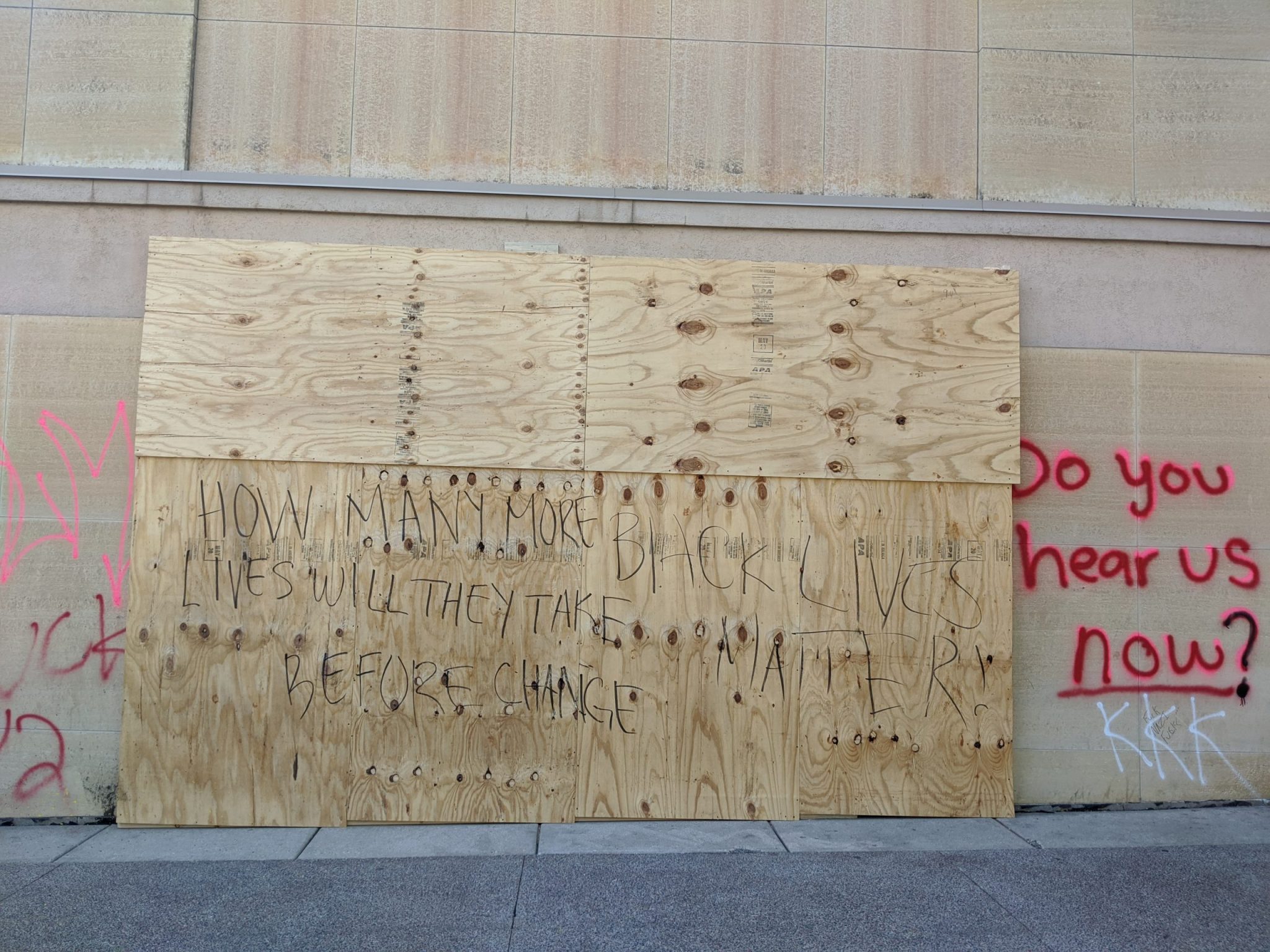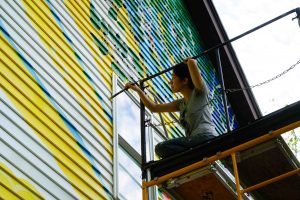The following are my public comments for two resolutions that would have redirected money from public infrastructure and given it to private commercial property owners. I was one of several public speakers in opposition to these two resolutions, as policies that not only did not help small businesses but also were inherently racist in their formation. After a 2.5 hour debate, the Common Council sided with Madison residents who opposed these two resolutions. But much of the press has only covered the businesses’ perspectives, with journalists even openly admitting that they did not read the resolutions or attend the Common Council meeting to know what actually transpired.
You can listen to the recording of the meeting here. Discussion of these two resolutions starts at 48 minutes.
Public Comment for 60995:
I am here in opposition to 60995, which outlines the use of public tax dollars for repairs on commercial structures housing State Street businesses.
The crux of this issue is the subsidizing of private property ownership with public tax dollars that could otherwise be used to benefit the public good. This is happening at a time when city departments are facing a 5% budget cut.
It is not wrong to want to help small businesses. But it is important to ask if what we’re doing is actually helping. Since the start of the pandemic, business grants and loans have not slowed the closure rate of businesses, though much of that money has gone to subsidize small business owners’ rental costs. Rent remains one of the highest costs for most businesses. Yet very few property owners have offered rent abatements or forgiveness during the pandemic, meaning property owners continue to profit when their tenants are incapacitated. Private property owners continue to build wealth at a time when every other industry is suffering. Rent on State Street and downtown is some of the highest in the city. Federal loans are already subsidizing the real estate industry with public tax dollars. Now the Downtown Recovery Program seeks to allocate public tax dollars to repairing those properties. This is happening simultaneously with an affordable housing crisis and the crisis of gentrification in our city. We cannot continue allocating money to the benefit of private property over people.
So why is it a problem to bail out private property? At the founding of this nation, only white men who owned property had the right to vote. At the founding of this nation, colonizers displaced indigenous people in order to gain wealth via property ownership. At the founding of this nation, white people treated black people as property, and used black people’s labor to cultivate wealth from the land that white people claimed ownership of.
So when we talk about bailing out private property, we are also talking about bailing out wealth. The average white family has 6.7 times more wealth than the average black family. The property in downtown Madison is some of the most expensive real estate in this city, yet we ignore the role of this expense in downtown’s lack of black-owned businesses. When questioned by the Common Council, the representatives of Downtown Madison admitted that there are zero black-owned businesses on State Street.
We are at a pivotal time, and we are being challenged to reexamine the racist roots of this country. If we pass this resolution today, then we will have failed to acknowledge the role that private property plays in our racist history. We will have failed to acknowledge the role that private property plays in the wealth gap. We will be proving once again that the only way to get the city to invest in you is if you already have wealth.
In conclusion, I am opposed to 60995, and the misuse of public tax dollars for private wealth’s benefit.
Public Comment for 61060:
I am here in opposition to 61060, which would appropriate $750,000 from public services and use it for private businesses, and a resolution that can apparently change after subcommittee review.
I’d like to take a moment, after listening to earlier comments, to tell the Council about the 1992 Los Angeles Riots, following the beating of Rodney King and murder of Latasha Harlins, two black people brutalized at the hands of LA Police. The 1992 LA riots destroyed many small businesses especially in Koreatown. Korean business owners blamed the city of LA for not doing enough to save their small businesses. The LA Riots pitted Korean small business owners and the Asian American community against the black community. It is a historic example of how white supremacy weaponizes non-black POC to maintain the status quo against black people.
Today, we witnessed Downtown Madison representatives weaponize the “Model Minority” archetype via the stories of POC immigrants who own businesses on State Street. While these stories may be sad, it is important for us to recognize what’s happening when white leaders in our community use POC stories as a tool to get what they want.
It remains morally unethical to reallocate funds from public infrastructure towards the benefit of private property. It is additionally irresponsible to lock up funds for the Equity Program that only yesterday had a document for the public to review. What’s motivating the push to pass this resolution is not equity—but wealth.
When the city cannot reallocate $500,000 from one public project to another in the face of city budget cuts because of bureaucratic technicalities, but can reallocate $500,000 from public to private use, the message is clear. We will create money for private downtown businesses any way we can—but any argument about how to reallocate $500,000 between different public uses will fall victim to technicalities.
We have heard the representatives of Downtown Madison emphasize the economic importance of all this, stating that 10.9% of the tax base comes from District 4. We have heard downtown called the city’s economic engine. We have heard repeated, performative appeals to equity and inclusion.
It’s interesting how we talk about economic importance based on financial value and equity at the same time. 10% of the tax base coming from downtown is an admittance that downtown holds the majority of the wealth. Again, the average white family has 6.7 times the wealth of the average black family. Are the sponsors of this resolution ready to tell black residents that the city’s investment depends on how much wealth someone generates for the city? If so, perhaps we should be talking about reparations to people, not private property bailouts.
Let’s talk more about the last-minute inclusion of equity in 61060. Notice how we’re not having a debate about a Southside Equity Program. Why? Because the Southside doesn’t have a diversity problem. The Southside is already diverse. The only reason anyone wants a Downtown Equity Program is because downtown has a diversity problem. But that problem isn’t going to be solved by locking up $250,000 for Downtown Equity or by subsidizing the repairs of private properties.
In conclusion, I oppose 61060 and the misuse of public tax dollars for private properties’ benefit.




